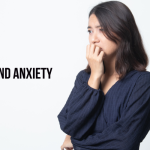
- 16.10.2024
- Menstrual Health Blog
And it’s not just about testosterone☝ Let’s talk about the visible and invisible fronts of libido.
Modern Male Libido
Libido is an integral part of male life energy. Do you spend most of your energy on work or self-development? Then you might have neither time nor desire for sex. And if the lack of sexual activity doesn’t bother you? Don’t pay attention to societal stereotypes. As they say—there’s no need to prove anything to anyone. If you don’t want to have sex, then don’t. Instead, you can direct your libido towards other activities. There are no scientifically proven rules about how many erections and how much sex should be in your life. Therefore, there are no norms you must adhere to. But if you have concerns about a lack of desire for sex or that you rarely think about it, that’s a different matter.
Factors Affecting Sexual Desire
For men, health and quality of life are closely related to libido levels. However, sexual desire can change due to various factors, both physical (visible) and psychological (invisible).
- Physical Condition.
Overall health is one of the main factors affecting male libido. As cliché as it may sound, it’s quite simple and clear—lack of sleep, poor diet, alcohol abuse, drug use, smoking, and excess weight can lower testosterone levels and ultimately lead to a decrease in libido.
- Psychological Condition.
Stress, depression, anxiety, and other psychological issues can negatively impact desire.
- Activity Level.
Physical activity levels also affect sexual desire. Regular physical activity improves circulation, increases testosterone levels, and thereby boosts libido. However, overloading at the gym will not positively impact your sexual desire.
- Age.
Sexual desire in men can change with age. Typically, testosterone levels begin to decline after age 30. However, a healthy lifestyle and regular exercise can help maintain high libido levels for a longer period.
- Environment.
The environment and lifestyle can also influence male libido. For example, working in high-stress conditions, low self-esteem, poor relationships with a partner, or lack of sexual experience can have a negative effect.
It’s also important to understand that libido levels can change during different periods of life, such as after an injury, illness, or stress.
Conclusions
In the end, to increase libido (with normal testosterone levels), you need to learn to enjoy life. Try to eat quality and tasty food, get enough sleep, engage in moderate physical exercise, travel, focus on personal growth, and diversify your leisure activities. It’s much harder to want sex when you’re feeling down than when you’re in a good mood and in good shape.
After exploring the factors that influence male libido, it’s important to address what to do when you’re not in the mood for sex.














